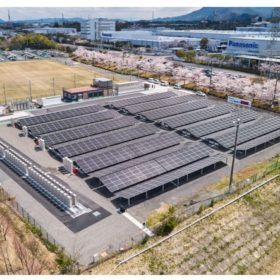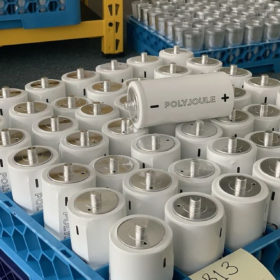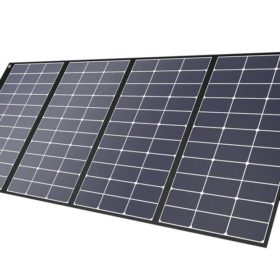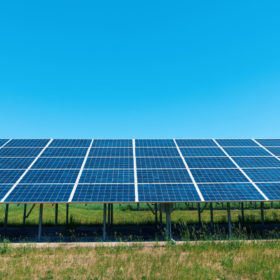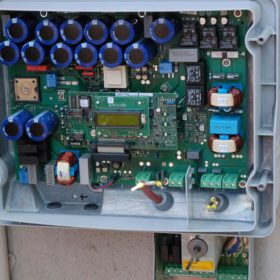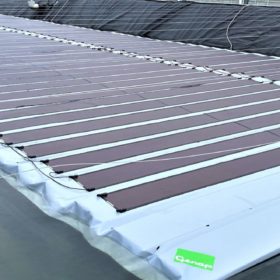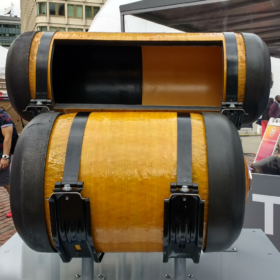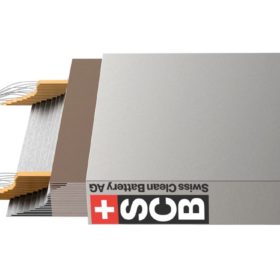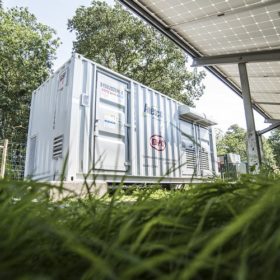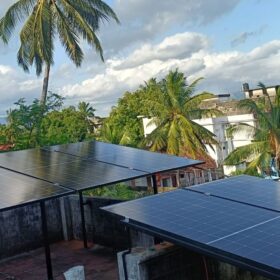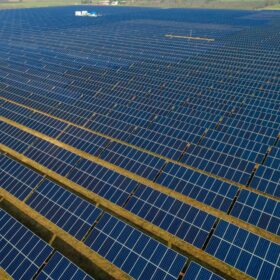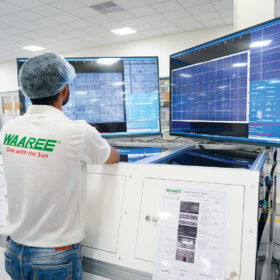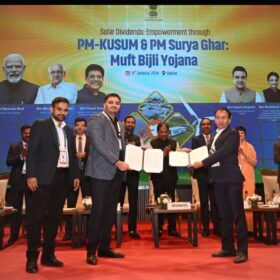Panasonic combines fuel cells, batteries, PV to power factory in Japan
Japan’s Panasonic claims its new pilot solar-plus-hydrogen facility marks the first attempt to create a factory powered by 100% renewables, via the full-scale use of hydrogen.
US start-up develops polymer-based batteries for stationary storage
Developed by an MIT spin-off, the device is based on a standard, two-electrode electrochemical cell containing conductive polymers, a carbon-graphene hybrid, and a non-flammable liquid electrolyte. The battery cells were tested to perform for 12,000 cycles at 100% depth of discharge.
Bluetti launches 350 W portable solar module
The new product relies on 23.4%-efficient solar cells and features a short-circuit current of 10.8 A. It can be folded into a briefcase and is claimed to be an ideal solution for camping and outdoor activities.
Bangladeshi fabrics maker invests in 100 MW solar plant
The solar park will sell power to the Bangladesh Power Development Board at a price of $0.1195/kWh under a 20-year power purchase agreement.
Solar inverter fault detection techniques at a glance
New research has categorized all existing fault detection and localization strategies for grid-connected PV inverters. The overview also provides a classification of various component failure modes and their potential causes in a tabular form.
Lightweight solar for agricultural water reservoirs
The Genap Energy Cover uses HyET Solar Powerfoil thin-film solar modules, rated at 12.0% efficiency, for agricultural water storage and reservoirs, with an initial focus on the greenhouse and horticulture markets in the Netherlands. Genap said a 12kWp test setup had a generation density of 60W/m2, rising to 120W/m2 within a year, with an eventual target of 165W/m2.
UK government warns of global warming risks related to hydrogen leaks
The UK Department for Business, Energy and Industrial Strategy has published new research showing that hydrogen leaks could have an indirect climate-warming impact, partly offsetting efforts to reduce carbon dioxide emissions.
Pure solid state batteries from Switzerland
Swiss Clean Battery is set to start commercial production of its pure solid state batteries in Switzerland. The batteries are based on a protected electrolyte made of a solid ion conductor, which helps to maintain internal resistance and capacity. The fixed ion conductor is formed in the battery cell itself, similar to a multi-component adhesive.
APAC to lead global battery storage market, clock 68% share by 2026
The global battery energy storage market will grow to $10.84 billion in 2026, with around two-thirds of the demand concentrated in the Asia Pacific region.
Photovoltaic cell harvests energy day and night
Stanford researchers develop a device that harvests energy from the temperature difference between the PV cell and the air.
